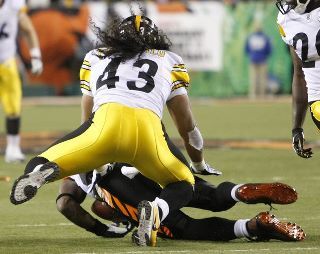Post by misty on Jan 7, 2007 0:46:13 GMT -5
Charlie Girl
www.healthyplace.com/Communities/Parenting/cdi/learning/remedial_reading.htm
Helping Children Overcome Reading Difficulties
by Carl B. Smith and Roger Sensenbaugh
ERIC Digest 1992. ED 344190
Almost everyone knows a story about the nice little youngster (or sometimes, a grownup) who works hard but can't seem to learn to read and to write.
Helping The Problem Reader
There is growing evidence that it might be more appropriate to refer to the amount of time a learner takes to complete a reading task rather than using qualitative
labels, such as good, best, or poor reader
One of the reasons that these learners read more slowly is that they seem less able to identify the organization of a passage of text (Wong and Wilson, 1984).
One effective strategy for slower readers is to generate visual images of what is being read (Carnine and Kinder, 1985).
Helpful Reading Materials
As is the case with most learners, slower readers learn most comfortably with materials that are written on their ability level (Clark et al., 1984). The reading level is of primary concern, but parents can help their reader select helpful materials in other ways. Choose stories or books with:
a reduced number of difficult words
direct, non-convoluted syntax
short passages that deliver clear messages
subheads that organize the flow of ideas
helpful illustrations
Follow the link at the top for the full article
I learned to read phonetically but also with the whole word recognition for the words which were smaller and common such as "and, are, but" and words which are not easily sounded out. My children were taught using mostly the whole word approach but when they had difficulty reading a word at home, I taught them to sound the words out because that is how I learned.
My children are both good readers now.
I'm wondering how many children with reading problems were taught to read using whole word recognition. How many are helped at home by people who encourage sounding the words out?
What have you found that helps you help your kids read? What have you tried that didn't work? Have you heard of ways to help your child but don't quite understand how to implement them, that another parent may be able to explain easily?
No one way is going to work for every child but if we can put our experiences here, both positive and negative, it may help someone else find the way that will work best for them.
www.healthyplace.com/Communities/Parenting/cdi/learning/remedial_reading.htm
Helping Children Overcome Reading Difficulties
by Carl B. Smith and Roger Sensenbaugh
ERIC Digest 1992. ED 344190
Almost everyone knows a story about the nice little youngster (or sometimes, a grownup) who works hard but can't seem to learn to read and to write.
Helping The Problem Reader
There is growing evidence that it might be more appropriate to refer to the amount of time a learner takes to complete a reading task rather than using qualitative
labels, such as good, best, or poor reader
One of the reasons that these learners read more slowly is that they seem less able to identify the organization of a passage of text (Wong and Wilson, 1984).
One effective strategy for slower readers is to generate visual images of what is being read (Carnine and Kinder, 1985).
Helpful Reading Materials
As is the case with most learners, slower readers learn most comfortably with materials that are written on their ability level (Clark et al., 1984). The reading level is of primary concern, but parents can help their reader select helpful materials in other ways. Choose stories or books with:
a reduced number of difficult words
direct, non-convoluted syntax
short passages that deliver clear messages
subheads that organize the flow of ideas
helpful illustrations
Follow the link at the top for the full article
I learned to read phonetically but also with the whole word recognition for the words which were smaller and common such as "and, are, but" and words which are not easily sounded out. My children were taught using mostly the whole word approach but when they had difficulty reading a word at home, I taught them to sound the words out because that is how I learned.
My children are both good readers now.
I'm wondering how many children with reading problems were taught to read using whole word recognition. How many are helped at home by people who encourage sounding the words out?
What have you found that helps you help your kids read? What have you tried that didn't work? Have you heard of ways to help your child but don't quite understand how to implement them, that another parent may be able to explain easily?
No one way is going to work for every child but if we can put our experiences here, both positive and negative, it may help someone else find the way that will work best for them.




